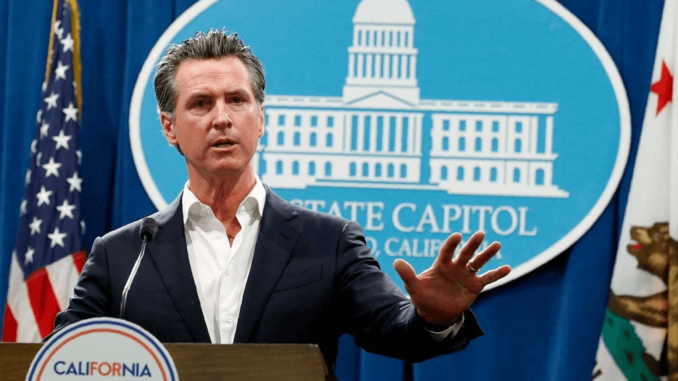
Gavin Newsom, Governor of California, went on record to state his views on reparations for descendants of enslaved Black people and the residual systemic oppression that has followed.
“The Reparations Task Force’s independent findings and recommendations are a milestone in our bipartisan effort to advance justice and promote healing,” Gov. Newsom (D) said in a statement. “This has been an important process, and we should continue to work as a nation to reconcile our original sin of slavery and understand how that history has shaped our country.”
Gov. Newsom added that many of the recommendations set forth in a proposal approved by the California Reparations Task Force at a meeting in Oakland, CA over the weekend are already in motion. These general implementations have yet to directly impact the Black community residing in California and are often muddled in conversations to help all Californians.
Newsom continued, “Dealing with that legacy is about much more than cash payments. Many of the recommendations put forward by the Task Force are critical action items we’ve already been hard at work addressing.”
The California governor claims that the State is “breaking down barriers to vote, bolstering resources to address hate, enacting sweeping law enforcement and justice reforms to build trust and safety” and contributing “billions to root out disparities and improve equity.”
Even with the Task Force’s proposal directly addressing the neglect of the Black community amid other marginalized communities being propelled in political and economic spaces, Newsom maintains that his efforts “to advance systemic changes that ensure an inclusive and equitable future” are for “all Californians.”
Several attempts at reparations for descendants of enslaved Black people have riddled U.S. history with none of them reaching state or federal legislation. The infamous promise to Black Americans of “40 acres and a mule” was conceived in the Special Field Order No. 15 by Union General William T. Sherman on Jan. 16, 1865, to distribute land in the South Carolina, Georgia, and Florida states to Black individuals. However, that order was overturned by President Andrew Johnson in the same year.
Ideas of federally-funded educations have also been a part of the discourse, leading to committee studies, but again, not into legislation.
The California Task Force’s reparations proposal makes recommendations for restitution in areas that addresses discrimination in education, employment, housing and healthcare, along with a sordid history of police harassment and brutality and unfair mass incarceration.




Woh I love your content, saved to fav! .